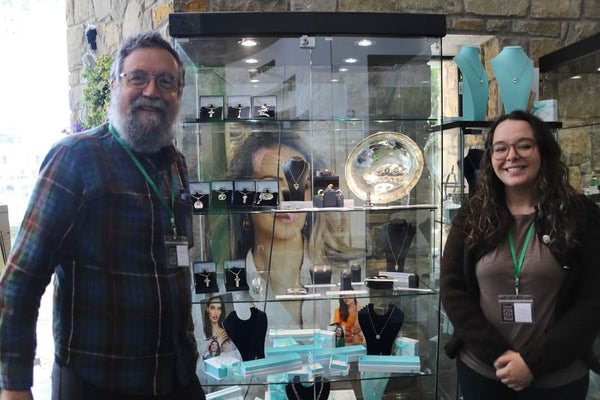- Jewelry
- Crosses
- Rings
- Mens
- Claddagh
- Wedding
- Personalized Jewelry
- John Urban Jewelry
- Sale
- Gift Certificates
- About Us
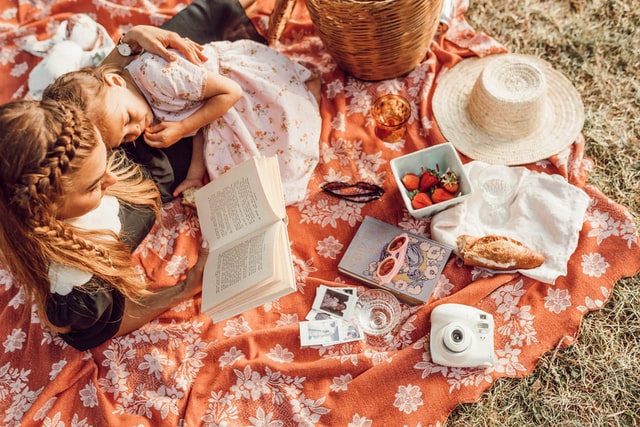
Mother's Day is on the horizon, and people around the world are looking for ways to honor their mothers for all they do for us. The secular Mother's Day holiday celebrated in the United States and Canada is a relatively recent holiday. In contrast, Mothering Sunday has been celebrated on the fourth Sunday of Lent since the 1500s in Ireland and the United Kingdom. This holiday was originally a religious holiday focused on each family's mother church. Eventually, it evolved into the recognition of motherhood in general.
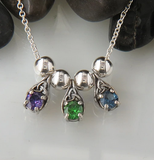 Today, gift-giving has become a tradition for both Mother’s Day and Mothering Sunday, with symbolic presents such as Walker Metalsmiths hand-crafted Celtic crosses or Celtic pendants featuring children's birthstones. It should come as no surprise that there are religious origins to Mother's Day, as many Celtic traditions have become intermingled with Christian holidays over the centuries.
Today, gift-giving has become a tradition for both Mother’s Day and Mothering Sunday, with symbolic presents such as Walker Metalsmiths hand-crafted Celtic crosses or Celtic pendants featuring children's birthstones. It should come as no surprise that there are religious origins to Mother's Day, as many Celtic traditions have become intermingled with Christian holidays over the centuries.
Other Celtic Traditions Honor Motherhood
While a specific holiday called Mothers' Day isn't a part of Celtic heritage, various Celtic traditions and holidays have long honored the role of women as wives, mothers, and nurturers. Imbolc, the Trinity Knot, and other Mother's Day Traditions recognize the power of women in some way.
Imbolc and Motherhood
Imbolc, an ancient Celtic celebration of spring, fertility, and renewal, recognized the strength of women in the personification of motherhood symbolized by the pagan goddess Brigid, an ancient goddess of fertility. Each year on Imbolc, she was celebrated and invited into people’s homes on Imbolc by families hoping for her blessings in the coming year.
St. Brigid’s Day
Although she never married or had children of her own, St. Brigid, one of the most beloved of Celtic saints, is seen as the protector of midwives and mothers. She was an incredibly nurturing woman who cared for and converted her dying father, weaving the St. Brigid's cross to teach him. Walker Metalsmiths has interpreted that cross in more than one style of hand-crafted Celtic necklace. She also fed the poor and became a nun and later an Abbess, becoming the mother figure to an entire chapterhouse of nuns.
Trinity Knots
As a symbol of the importance of women and their roles in our lives, the trinity knot can be interpreted in many ways. The most traditional is the three stages of womanhood represented in ancient Celtic lore: Maiden, Mother, and Crone. Each age represents an aspect of the feminine that is esteemed in Celtic culture: the innocence and purity of the maiden, the nurturing and love of the mother, and the wisdom and guidance of the crone.
The trinity knot, sometimes called the triquetra, can also represent mother, father,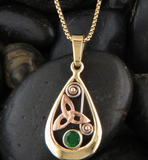 and child. This makes it a lovely Celtic necklace for Mother's Day or any special occasion when you want to recognize a special familial bond. More recently, it has become a beautiful tradition for a grandmother, mother, and granddaughter to wear matching triquetra Celtic pendants to represent the unbroken bond of maternal love through the generations. There are innumerable ways within Celtic traditions to honor your mother and all the women who have enriched your life throughout the years. We hope you'll let Walker Metalsmiths help you find the perfect gift for these occasions.
and child. This makes it a lovely Celtic necklace for Mother's Day or any special occasion when you want to recognize a special familial bond. More recently, it has become a beautiful tradition for a grandmother, mother, and granddaughter to wear matching triquetra Celtic pendants to represent the unbroken bond of maternal love through the generations. There are innumerable ways within Celtic traditions to honor your mother and all the women who have enriched your life throughout the years. We hope you'll let Walker Metalsmiths help you find the perfect gift for these occasions.
Comments will be approved before showing up.
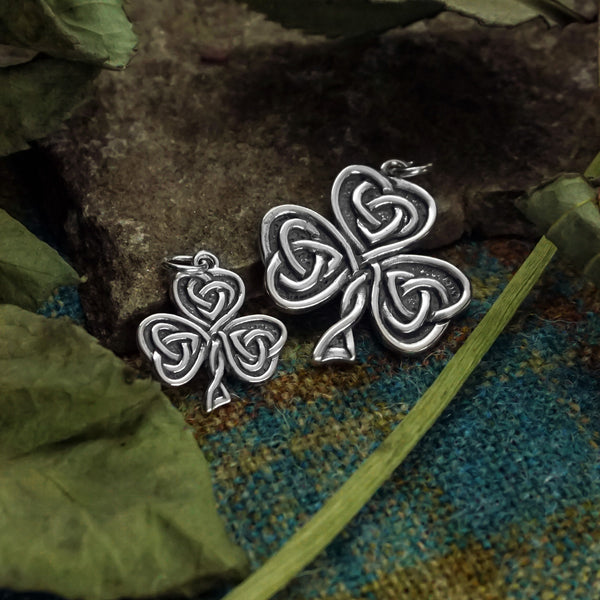

Thousands of photographs were taken. Help find at least one.
Were you a tourist in London, Dublin or Paris in 1975 – 1978? Did you see a street performer playing bagpipes? Did you take his picture? Was it Steve Walker? If you can share that picture with Walker Metalsmiths you could score some sweet Celtic jewelry.
